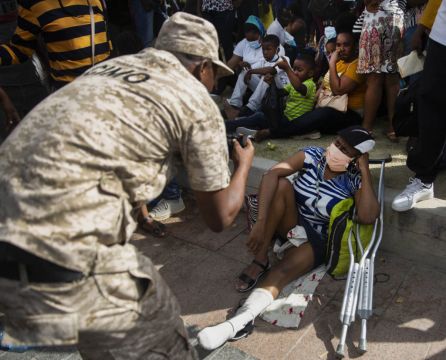Haiti’s interim government has asked the US to deploy troops to protect key infrastructure as it tries to stabilise the country and prepare the way for elections following the assassination of President Jovenel Moise.
“We definitely need assistance and we’ve asked our international partners for help,” interim Prime Minister Claude Joseph told The Associated Press in a phone interview late on Friday.
“We believe our partners can assist the national police in resolving the situation,” he added.

But the administration of US President Joe Biden has given no indication it will provide military assistance.
It only plans to send FBI officials to assist with the ongoing investigation into a crime that has plunged Haiti, a country already wracked by gaping poverty and gang violence, into a destabilising battle for power and a constitutional standoff.
Dozens have been arrested following the attack at Mr Moise’s home before dawn on Wednesday, in which he was killed and his wife seriously wounded.
Mr Joseph spoke as more details emerged of a killing that increasingly has taken the air of murky, international conspiracy involving a Hollywood actor, a shootout with gunmen holed up in a foreign embassy and a private security firm operating out of a cavernous warehouse in Miami.

Among those arrested are two Haitian Americans, including one who worked alongside Sean Penn following the nation’s devastating 2010 earthquake.
Police have also detained or killed what they described as more than a dozen “mercenaries” who were former members of Colombia’s military.
Some of the suspects were seized in a raid on Taiwan’s Embassy where they are believed to have sought refuge. National Police Chief Leon Charles said another eight suspects were still at large and being sought.
The stunning request for US military support recalled the tumult following Haiti’s last presidential assassination, in 1915, when an angry mob dragged President Vilbrun Guillaume Sam out of the French Embassy and beat him to death.
In response, President Woodrow Wilson sent the Marines into Haiti, justifying the American military occupation — which lasted nearly two decades — as a way to avert anarchy.







